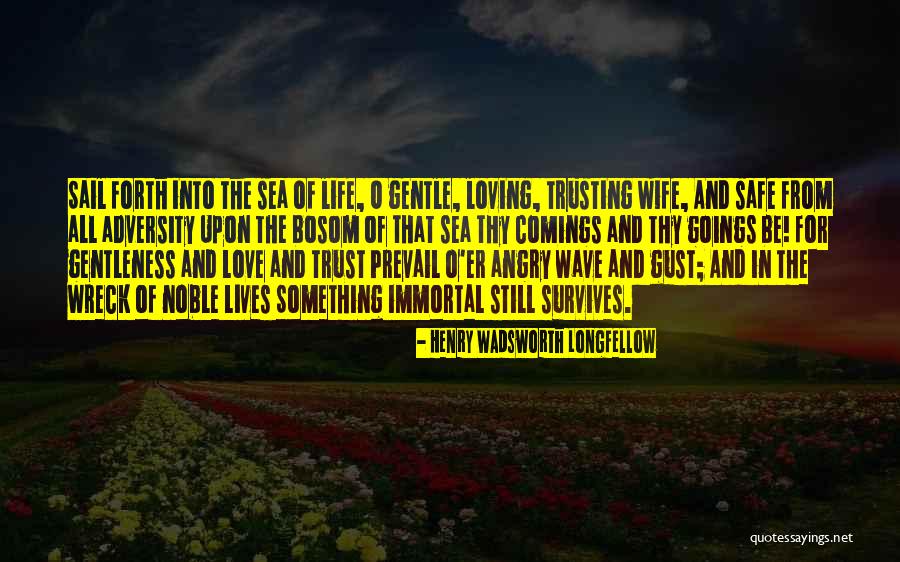

That’s in part what makes CBI’s territory, a chunk of the Charles River Basin between the Longfellow and Harvard bridges that Peirson describes as a “pond,” so valuable as a training ground for new sailors. All the buildings along the shore make it unpredictable even by New England weather standards, and boaters are often confronted with still, dead air one minute, then quick-moving gusts the next. The CBI team is apologetic about the slowness, but I learn the wind is fickle out here on the Charles. We set out slowly in the exceedingly calm breeze, blowing at what I would estimate was 0 knots. It was time to hit the water, so we climbed aboard a Sonar, a 23-foot-long sailboat I learn is the first choice of members who want to take out inexperienced friends and family (or reporters, evidently) in something gentle. Thanks to a VA grant, CBI offers fully accessible boating | Photo courtesy of CBI “There are no limitations at Community Boating for anyone to get out sailing. Is it economic? Is it physical? We’re here for it,” she says. “Whatever it may be that’s stopping someone from sailing, we want to figure out what that is. Its goal since the ’40s, says communications manager Sidaulia Benson, is to be the most wide-open boat club in Boston. Whereas traditional yacht clubs are exclusive by nature, CBI tries to never turn anyone away. Donors and big-name sponsors like EF Education First and Polar keep the program afloat, as does a volunteer culture at the club, which sees hundreds of its members donate their time to teach classes and take on other duties on the dock, keeping costs to a minimum. And because of that, it’s possible for CBI to give away memberships for as little as $1 to Boston’s neediest families while still managing its accessible boating program, which is fueled by an array of expensive equipment that enables disabled sailors to steer with a joystick-or, for paraplegic boaters, with a straw. The answer is, of course, that it’s a nonprofit. At very few places will you get access to all these boats and have lessons included,” he says. “It’s incredibly cheap for the sailing world. Peirson was baffled by this arrangement when he interviewed for his job back in 2018. Instead, after a small membership fee, everything is completely free. Unlike at more exclusive traditional clubs, no one at CBI personally owns these boats, or pays to launch them in the river or for lessons. Peirson, who comes to us by way of South Florida, gleefully compared the scene to what you typically find at pricey yacht clubs, settings people are most likely to associate with sailing. Through the big, welcoming entryway at the base of the footbridge, and down on CBI’s sprawling dock, I met Sam Peirson, the club’s adult program director and my guide for the day. As someone who never turns down an excuse to be on the water, I had no choice but to accept. To give me a taste of what they’ve been up to down there since 1946, CBI had offered to let me set sail with them. And to do it all in the shadow of Beacon Hill, with the same covetable views of the Boston skyline enjoyed by the richest of Boston boaters, makes it seem all the more unlikely. Its accessible sailing program, available for a nominal fee that tops out at $50 a year, is complete with specially built boats that paraplegic sailors can use.Īfter all this time, the nonprofit is still single-mindedly-even radically-pushing to democratize Boston’s waterways, keeping them from becoming a playground for the haves. A third of its youngest members pay nothing at all. Memberships, and access to its fleet, are the cheapest in the city by a longshot. And when it declares, as it does in big letters outside its Esplanade boat house, “SAILING HERE FOR ALL,” it means it. Generations of sailors from every corner of Boston-an estimated half a million in total-have set sail here. The club, with its armada of kayaks, paddle boards, and sailboats big and small, is the oldest and largest of its kind in the country. As of this summer, the scrappy, volunteer-driven nonprofit has officially spent 75 years at the edge of the Charles River making the impossible happen: turning sailing, pastime of wealthy WASPs and Ivy Leaguers on obscure sports scholarships, into something nearly anyone can do.

It’s hard not to be charmed by Community Boating, Inc.


 0 kommentar(er)
0 kommentar(er)
